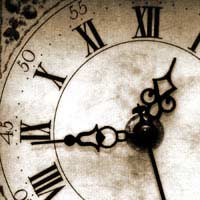How Surnames Change Over Time

Surnames can tell us a lot, although not as much as they once did. If you went back far enough you’d know exactly what someone called Brewer did, or that someone called French had come from France. But once surnames became fixed and handed on unchanged from father to children, the meaning of surnames took on less of a role.The origin of surnames is an interesting study, and the fact that you’re called Cooper might mean that some distant ancestor did make barrels. Equally, it might not – in the history of surnames, you’ll find that quite often, people have changed their names.
Why Do People Change Their Surnames?
There could be any number of reasons why people change their surnames. They might want a fresh start with a completely new name because of a break with the family, for instance. Some will have changed surnames in an attempt to evade the law. With immigrants, a complicated foreign name might well have been Anglicised (this happened a lot with Eastern European immigrants into the US, as the records at Ellis Island show), either by the person letting them into the country, or even the family itself in an attempt to assimilate.
A lot of women, too, change their surnames when they marry, or the name might become hyphenated to accommodate both married and maiden surnames together.
All of this means that the meaning of surnames could have radically altered – a Cooper could have become a Fletcher (originally a maker of arrows), for instance, or a York could have come a Bristol (or possibly Bristow, a variation on it). To be fair, it’s always just the minority where surnames will have been changed, but in genealogy we need to be wary about reading too much into the meaning of surnames.
The Problem With Changing Surnames
For the genealogist or anyone putting together a family history, going back and finding someone has changed the family surname can very extremely frustrating. In many cases the break between old and new surnames is a clean one, so it can prove very difficult, if not impossible, to find the original name, leaving you with a dead end that can prove impossible. Even if you can, you might never discover exactly why that ancestor chose to make a change, just adding to the mystery.
This is why you shouldn’t stake too much on the meaning of surnames; as you go back they can be deceptive, and sometimes, on the incredibly rare instances you can go all the way back, the origin of surnames might well prove not to be what you’d expect.Something else that happens, as you might well discover, if that the spelling of the surname alters over time. English spelling has really only been fixed for about 200 years; before that it was quite fluid, which means a surname could well have altered in both spelling (and possibly meaning) over the centuries before it became fixed. We think of William Shakespeare, for example, but in his time it was often also spelt Shakespere and several other ways, all of which were perfectly acceptable, and which makes studying the history of surnames fascinating.


Re: Using Criminal Records For Family History Research
Trying to find dads past history with arrests just out of interest as hes recently passed away and…
Re: Using Criminal Records For Family History Research
Hi all i wanted to find out about my dad's past and nobody seems to know much about it or what he did.…
Re: Maiden Names in Genealogy
Looking for my fathers mother maiden name
Re: Genealogy and a Criminal Past
I am trying to find out about my father crime in 1992 or 1993 my father as pass away 1998 and I would like to find out why he got…
Re: Using Criminal Records For Family History Research
I am trying to find my biological father's police criminal record as I was abused as a child but have…
Re: Cremation Records and Tracing Your Family History
I am trying to find out where has my friends aunt Adelinda Diaz McMullen was cremated and who was her…
Re: Cremation Records and Tracing Your Family History
CAN SOMEONE PLEASE HELP ME WITH TRYING TO FIND OUT WHERE MY FATHER WAS CREMATED/BURIED IN KENT UK. I…
Re: What If You Have Asian Roots?
Ancestor Edward Albert Wells was born in Trichinopoly on 8 May 1833 to his father George Wells of the 54th Regiment at Foot and…
Re: How to Use Church Marriage Records to Trace Your Ancestors
It is still legal for first cousins to marry.
Re: Cremation Records and Tracing Your Family History
My sister finance was cremation and she stayed up by his bedside at Augusta university for days on out…